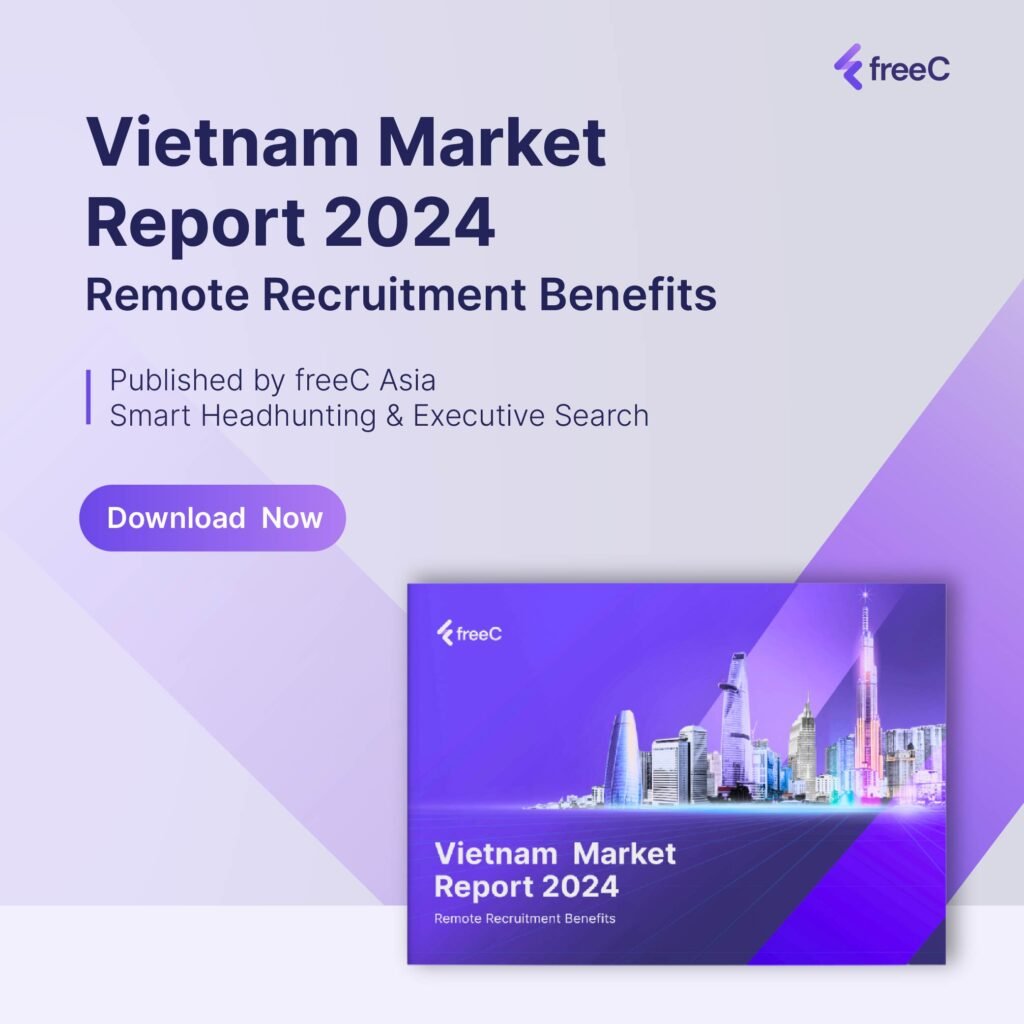Remote work has become the new norm across the globe, with businesses increasingly managing dispersed teams. Vietnam is no exception, with a booming remote workforce providing skilled professionals in various industries. In 2023, the number of remote workers in Vietnam surged by 32%, according to a report by VietnamWorks . Managing and retaining remote teams effectively, particularly in countries like Vietnam, requires specific strategies to ensure smooth collaboration, high productivity, and employee satisfaction.
Understanding the Remote Workforce in Vietnam
Vietnam’s remote workforce has grown steadily over the years, with key industries including IT, digital marketing, and customer support being at the forefront. The country’s young, educated population makes it a valuable resource for global companies seeking skilled remote professionals. According to the Ministry of Labor, Invalids and Social Affairs (MOLISA), 60% of the Vietnamese workforce is under 35 years old, creating a tech-savvy and adaptable labor pool .
Many remote workers in Vietnam are highly proficient in English, particularly in major urban centers like Ho Chi Minh City and Hanoi. This proficiency makes communication smoother, although cultural nuances and time zone differences still require careful consideration.
Effective Communication for Remote Teams
Clear and consistent communication is a fundamental aspect of managing remote teams. Tools like Slack, Zoom, and Microsoft Teams are widely used for instant messaging and virtual meetings. It’s crucial to establish regular communication protocols to maintain transparency and collaboration. According to a report by Buffer, 97% of remote workers believe that communication tools are essential for remote work success .
For teams in Vietnam, it’s important to be mindful of cultural communication styles. Vietnamese professionals value clear instructions and frequent updates. Scheduling regular video check-ins can help overcome the challenge of not being physically present. Time zone management is another factor to consider; Vietnam operates in GMT+7, so scheduling meetings should account for these time differences.
Fostering a Collaborative and Engaged Remote Work Culture
Building a strong remote culture is key to keeping teams engaged and productive. Remote teams in Vietnam, like anywhere else, need to feel connected to their company’s mission. Encouraging regular virtual team-building activities can enhance camaraderie. Global companies managing remote teams in Vietnam have reported a 21% increase in productivity after implementing virtual team-building exercises .
Recognition also plays an important role in fostering engagement. Employees who feel valued are 2.7 times more likely to stay with the company, as noted by a Gallup study . Implement a system where individual and team achievements are recognized, either through regular announcements during meetings or through an employee recognition platform.
Training and Development for Remote Employees
Providing learning and development opportunities is crucial for the growth and retention of remote teams. According to a LinkedIn report, 94% of employees said they would stay longer at a company that invests in their career development . For Vietnamese remote workers, offering online training sessions, mentorship programs, and courses in both technical and soft skills can be beneficial.

Popular e-learning platforms like Coursera and Udemy are commonly used to upskill remote workers in Vietnam. Additionally, encouraging workers to pursue internationally recognized certifications, such as AWS Cloud Certification for IT professionals, can keep them competitive in a fast-changing global job market.
Performance Management and Accountability
For remote teams, performance management is vital in ensuring productivity and goal alignment. Clearly setting key performance indicators (KPIs) helps employees understand their responsibilities and the metrics by which they are evaluated. In Vietnam, where many remote workers are tech-savvy, leveraging project management tools like Trello, Asana, and Monday.com has proven effective. These platforms allow team leaders to track progress, assign tasks, and ensure accountability.
A study by Harvard Business Review found that companies that use structured performance management systems report 21% higher profitability . Establishing regular one-on-one check-ins helps managers monitor employee progress, address concerns, and ensure alignment with overall business objectives.
Retention Strategies for Remote Workers in Vietnam
Retaining talent is a key challenge for remote teams. Competitive salaries, flexible working hours, and career growth opportunities are essential in keeping employees satisfied. Offering flexible working hours has been shown to increase employee satisfaction by 87%, according to a study by the International Workplace Group (IWG) .
Moreover, Vietnamese workers highly value job stability and professional growth. Providing structured career advancement plans and performance-based bonuses can encourage long-term loyalty. Remote workers in Vietnam are often driven by opportunities for continuous learning, job security, and the ability to work with international clients, all of which play a role in retention.
Legal and Compliance Considerations
When managing remote teams from Vietnam, it is important to comply with local labor laws. Vietnam has specific labor laws regarding minimum wage, benefits, and working hours, as outlined by MOLISA. For example, remote workers are entitled to the same labor protections as onsite workers, including regulated working hours and paid leave. Ensuring compliance with these laws can prevent legal issues and foster trust between employers and employees.
Additionally, businesses should ensure proper contracts are in place, defining clear terms for remote work, job expectations, and compensation. Legal frameworks such as Employee Leasing Agreements can also be explored for easier management of offshore workers.

This report will explain in detailed:
- Why your global recruitment strategy should focus on Vietnam market?
- What are 9 benefits that can significantly boost your recruitment ROI?
- How Vietnam workforce competency can leverage your business?
- How Vietnam salary guide & benchmark do benefit your hiring strategy?
To conclude
Managing remote teams, particularly in a growing market like Vietnam, requires careful attention to communication, culture, performance, and legalities. By implementing effective remote team management strategies, companies can build strong, productive, and engaged teams that contribute to long-term success. With the right tools, training, and retention efforts, businesses can tap into Vietnam’s thriving remote workforce to achieve their goals.









